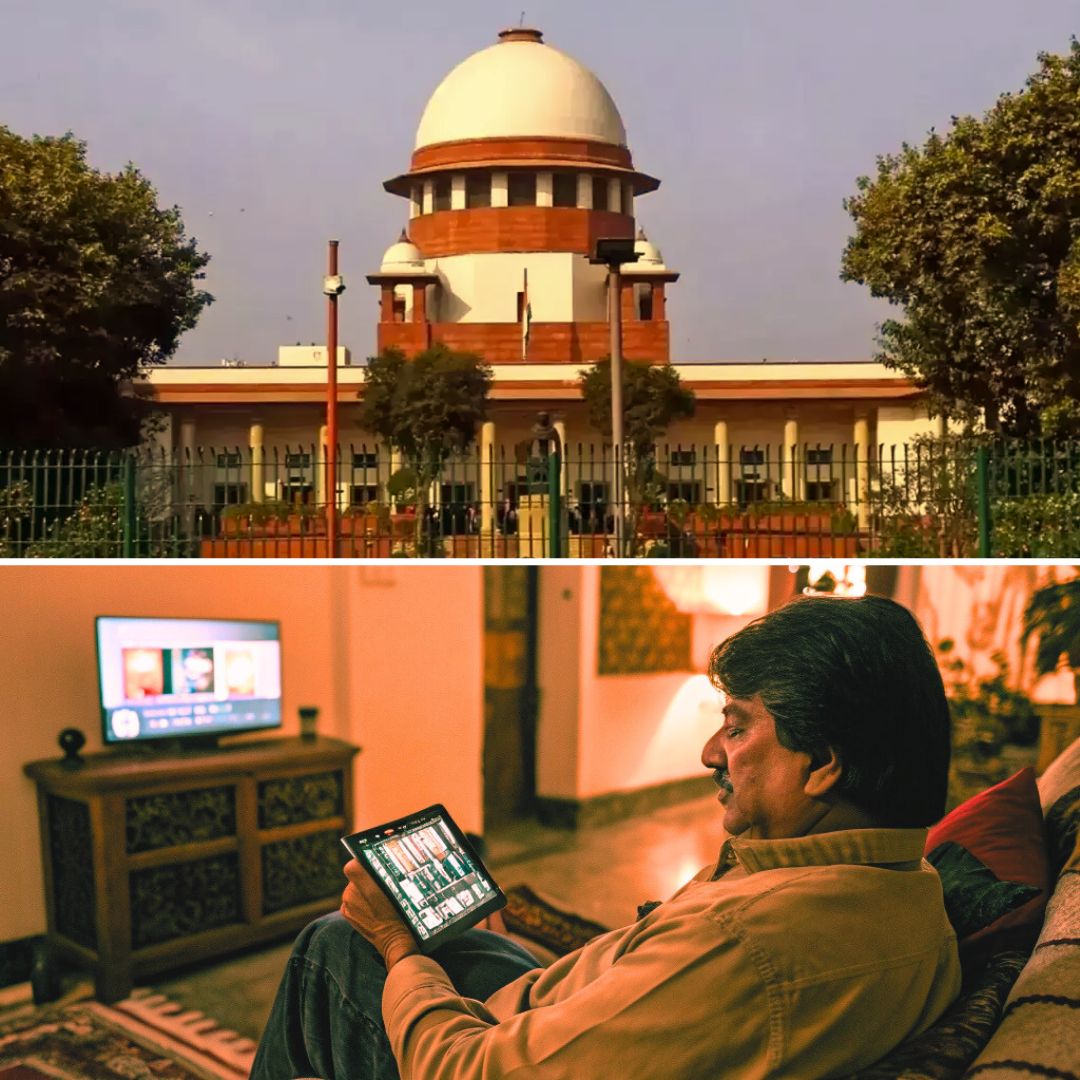The Supreme Court of India has directed the Centre, major OTT platforms (Netflix, Amazon Prime Video, Ullu, ALTT), and social media platforms (X, Facebook, Instagram, YouTube) to respond to a PIL demanding stricter regulation of sexually explicit and obscene content online.
The bench of Justices BR Gavai and Augustine George Masih emphasised that content regulation is a legislative and executive responsibility, urging the government to act decisively.
Solicitor General Tushar Mehta informed the court that the IT Rules (2021) are already operational, but petitioners argue these are insufficient to curb harmful content, particularly for minors.
Court Refuses to Overstep, Directs Centre to Act
During the hearing, Justice Gavai underscored the judiciary’s constitutional limits, stating, “There are allegations that we are encroaching upon the legislature and executive’s domain. It is not our job to frame laws here.” The bench stressed that while the issue of explicit content is pressing, solutions must come from policymakers.
Solicitor General Tushar Mehta acknowledged the gravity of the matter, revealing that the government is actively considering additional measures. “Some content is so graphic that even two adults cannot watch it together without discomfort,” he remarked, highlighting the need for stricter oversight.
The court has given the Centre four weeks to submit a detailed affidavit outlining its proposed regulatory steps.
Petitioners Demand Urgent Safeguards for Minors
The PIL, filed by five individuals including child rights activists, alleges that platforms like Ullu and ALTT host content that borders on pornography, often accessible to minors due to weak age-verification systems.
Advocate Vishnu Shankar Jain, representing the petitioners, cited instances of child exploitation material allegedly circulating on smaller platforms, urging the court to mandate real-time monitoring and AI-driven content filters.
The Logical Indian’s Perspective
This case reignites the debate over India’s approach to digital governance. While protecting minors from harmful content is non-negotiable, heavy-handed censorship risks undermining creative expression and privacy rights.
The Logical Indian advocates for a multi-stakeholder framework that involves parents, educators, and tech innovators to design solutions-such as improved parental controls and mandatory digital literacy programs-that empower users without stifling free speech.












